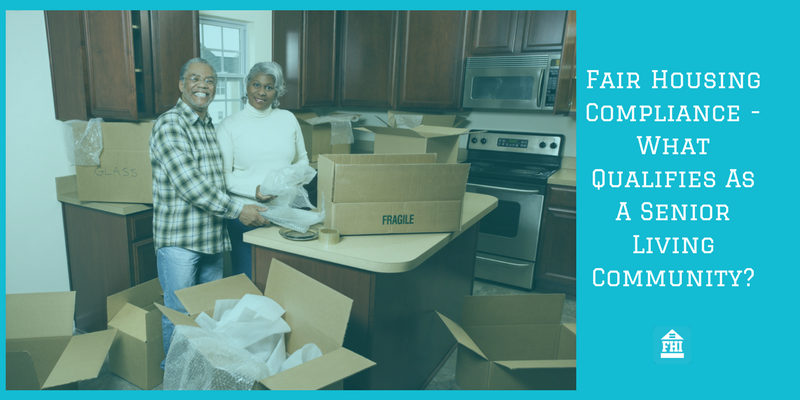
What qualifies as a senior living community? An increasing number of housing developments appear to be marketing themselves as “Active Adult” or “Empty Nester” communities. How can that be? “Adult Only” housing was outlawed in 1988 when President Ronald Reagan signed the Fair Housing Amendments Act (FHAA) into law.
Familial Status Exemption
Among the important changes to the original Fair Housing Act was the addition of “familial status” as a protected class. In 1988, an exemption was added to the familial status rules for properties that are able to qualify as “Housing for Older Persons.” The result? Exempt properties are immune from complaints of familial status discrimination. Still, nearly three decades later, many communities that want to exclude children seem unaware or ignore the fact that they first must qualify for an exemption to be compliant with the law.
How do housing providers qualify to meet the exemption?
- At least 80 percent of its units must be occupied by at least one person 55 years of age or older.
- OR, if at least one person 62 or older resides in each apartment home (100% of the homes), it is also considered a senior living community
- Properties are required to demonstrate their “intent” to be “Housing for Older Persons.”
Required Intent
How do enforcement agencies determine intent? They will look at the totality of facts. This would include the property’s policies, procedures, leases, advertising and so on. The determination of the required intent is purely a subjective opinion. And in at least one state, Florida, properties must certify their compliance with the state agency before they are considered exempt.
So when is it permissible for a property to advertise itself as being an “Active Adult” or “Empty Nester” community?
Some state and local enforcement agencies claim that using phrases such as ”Adult Living” or ”Adult Community” are always illegal. They argue that using such terms is incompatible with the intent requirement. If that’s true, then the property is leaving itself open to a fair housing complaint. But, in our view at least, it’s not true.
HUD Cautions
It is true that HUD has cautioned properties to avoid terms like “active adult” because they are inconsistent with the intent requirement. However, HUD is also on record as saying that the use of these terms alone does not destroy the intent requirement. If a community or facility has clearly shown its intent in other ways and meets the 80% requirement, then the intent requirement has been met. This is true even if the phrase “all adult” or similar terminology is occasionally used.
This is not to say, however, that exempt properties should use such terms; in fact, we recommend that our clients not advertise themselves in that way, unless they want to be caught up in an expensive investigation or enforcement action.
Recommended Terms
So what terms should your property use? Well, if your property is not exempt, then terms like “active adult” and “empty nester” should never be used. If your property wishes to become exempt or wishes to keep its exempt status, then HUD (and we) recommend you use the following terms:
- senior living community (BEST)
- senior housing
- housing for older persons
- 55 and older community
- retirement community
Another alternative we have seen is: “A 55 and Better Community.” What terms does your community use to stay compliant?
Be sure to check out our key reasons why you need our fair housing training.
